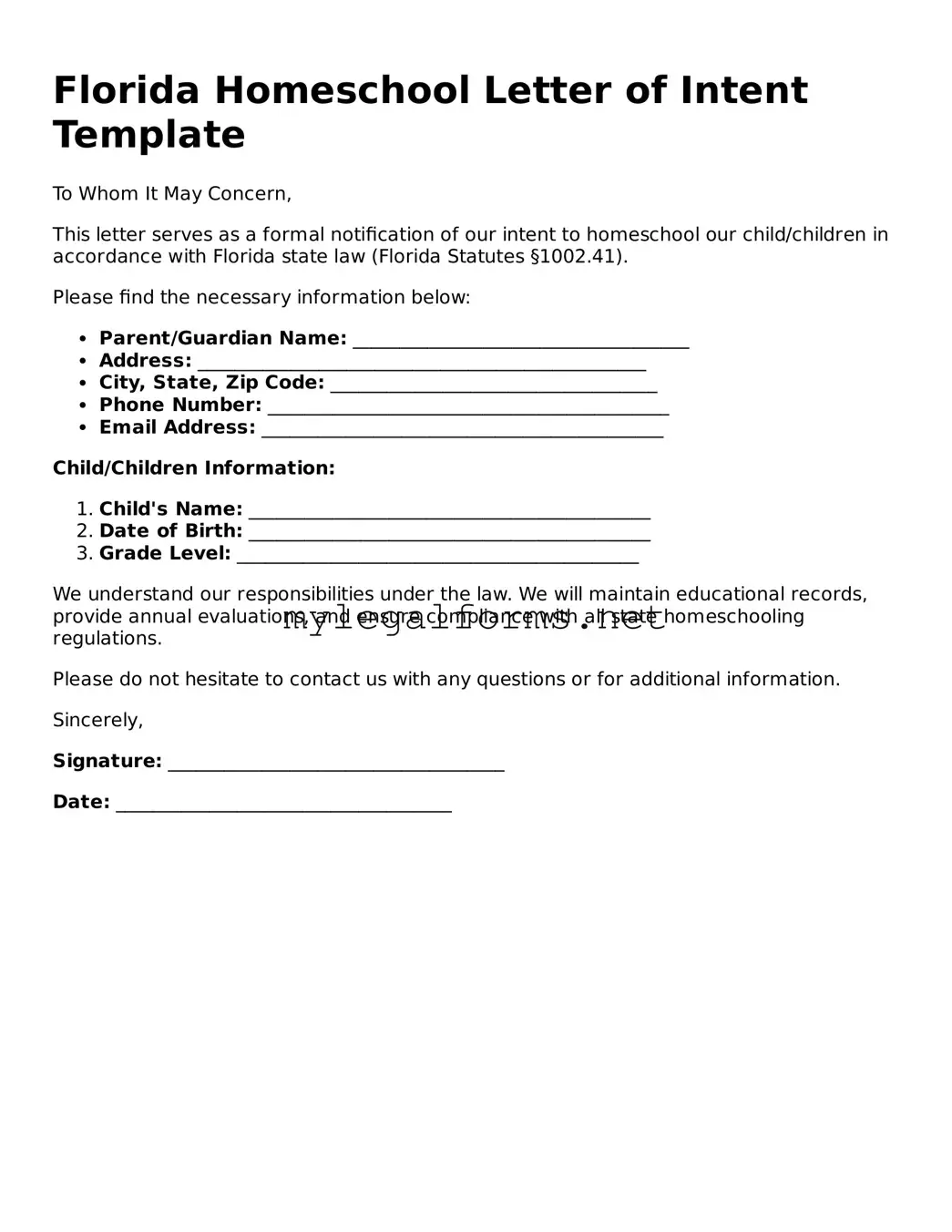Homeschool Letter of Intent Document for Florida State
The Florida Homeschool Letter of Intent form is a document that parents submit to officially notify their local school district of their decision to homeschool their children. This form serves as the first step in establishing a home education program in Florida. Completing this form is essential for compliance with state regulations and ensures that families can proceed with their homeschooling journey.
Launch Homeschool Letter of Intent Editor

Homeschool Letter of Intent Document for Florida State
Launch Homeschool Letter of Intent Editor

Launch Homeschool Letter of Intent Editor
or
⇓ PDF Form
Complete the form at your pace — fast
Finish your Homeschool Letter of Intent online and download the final version.